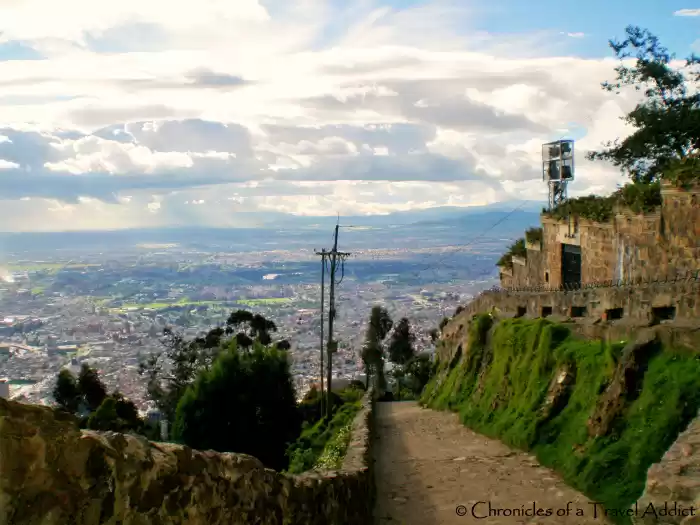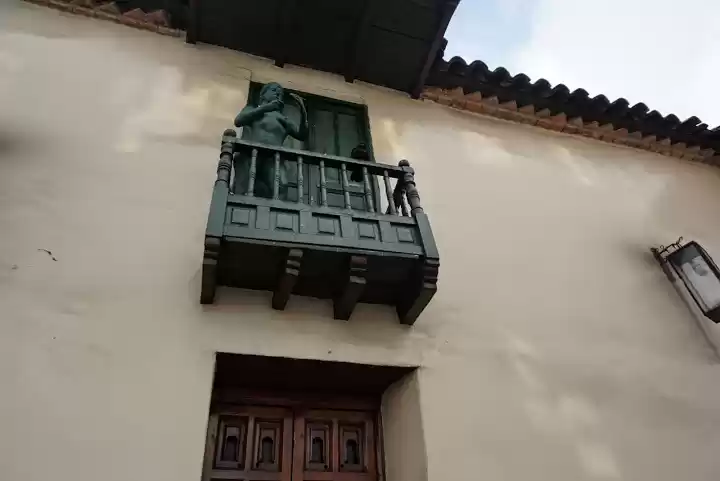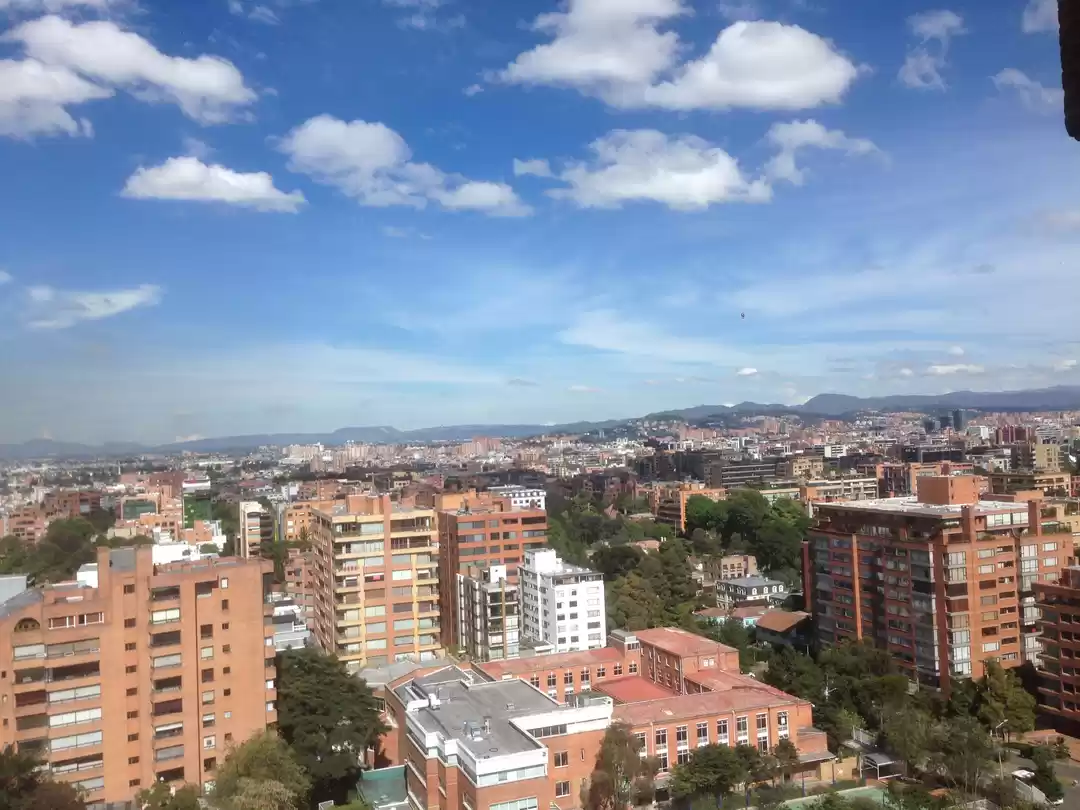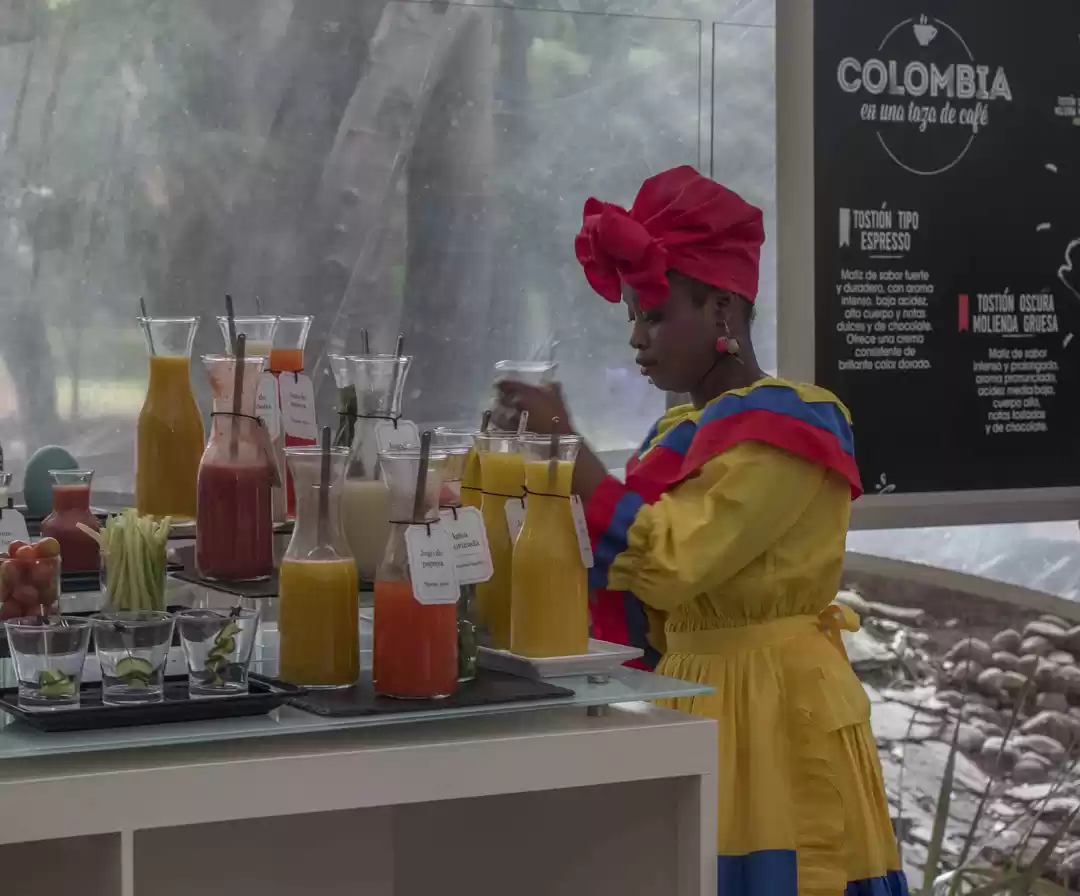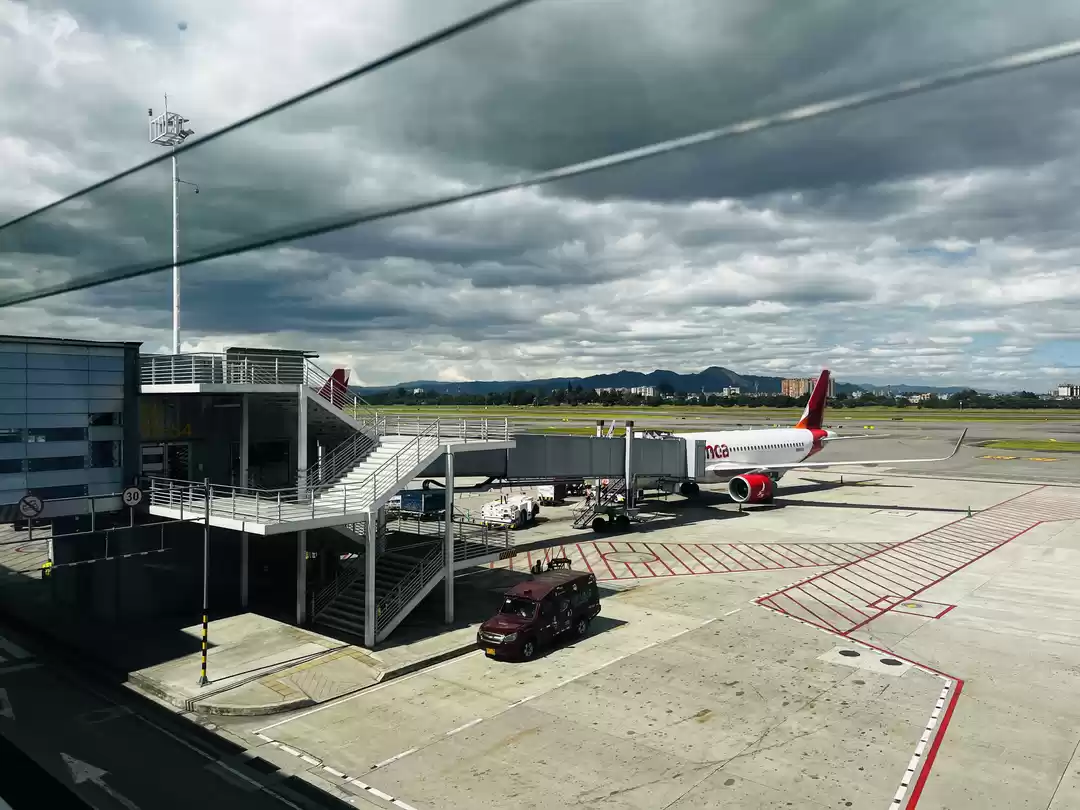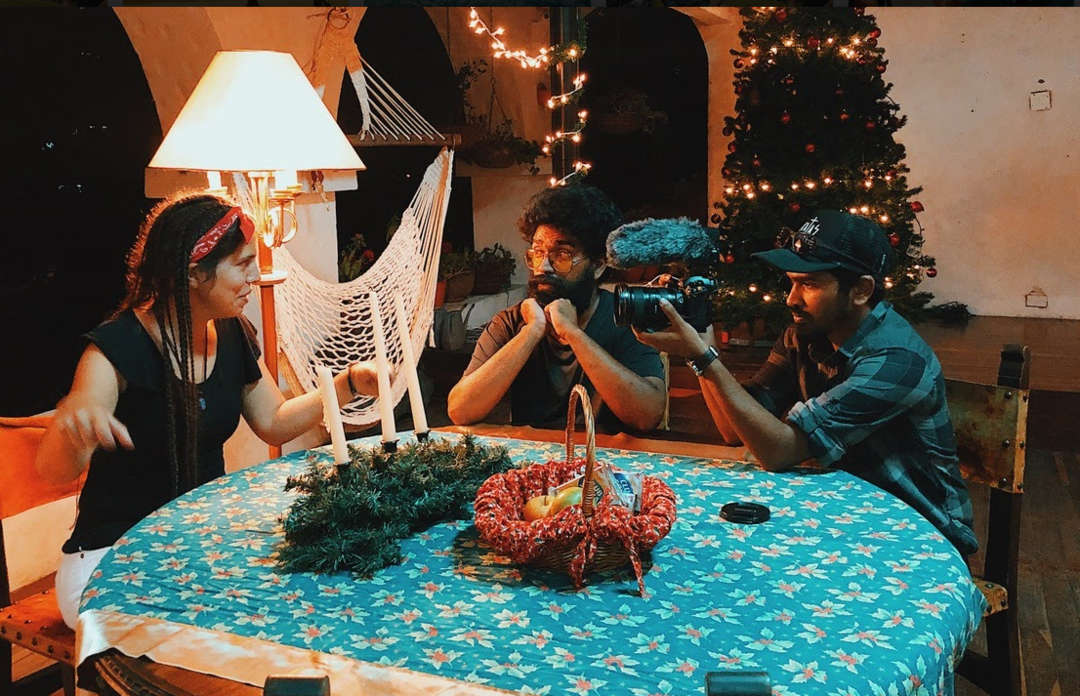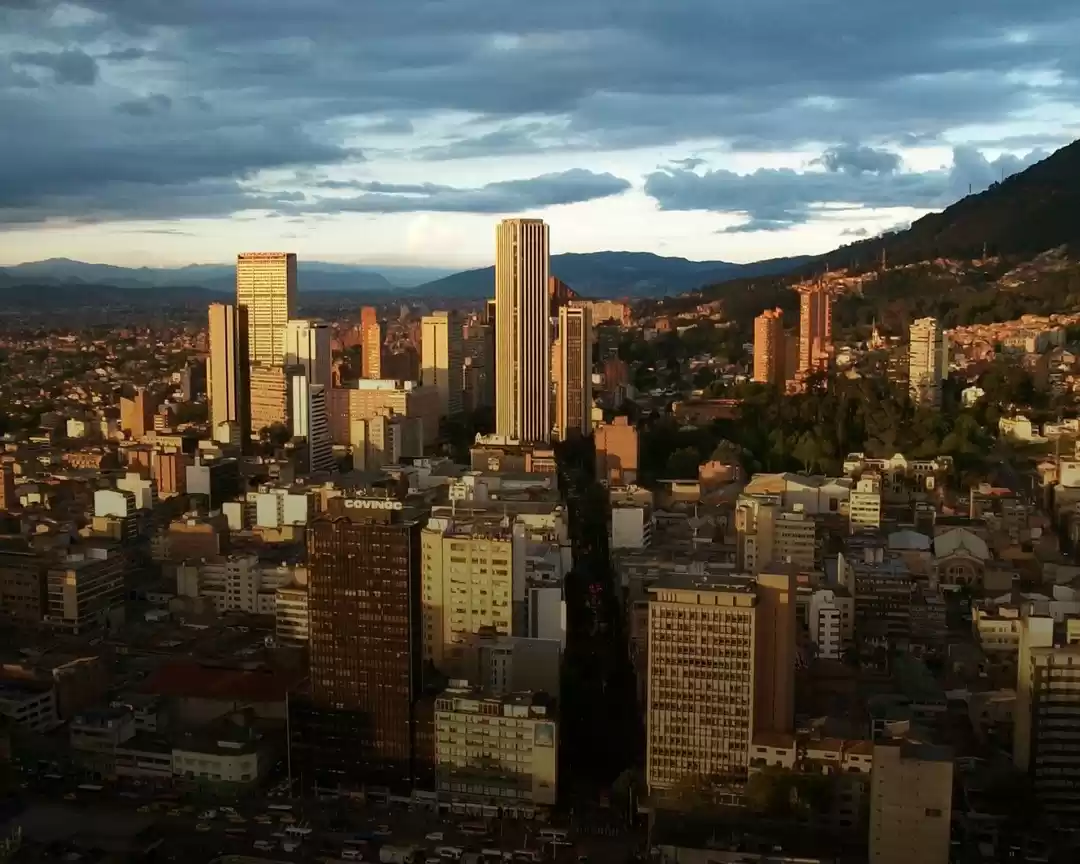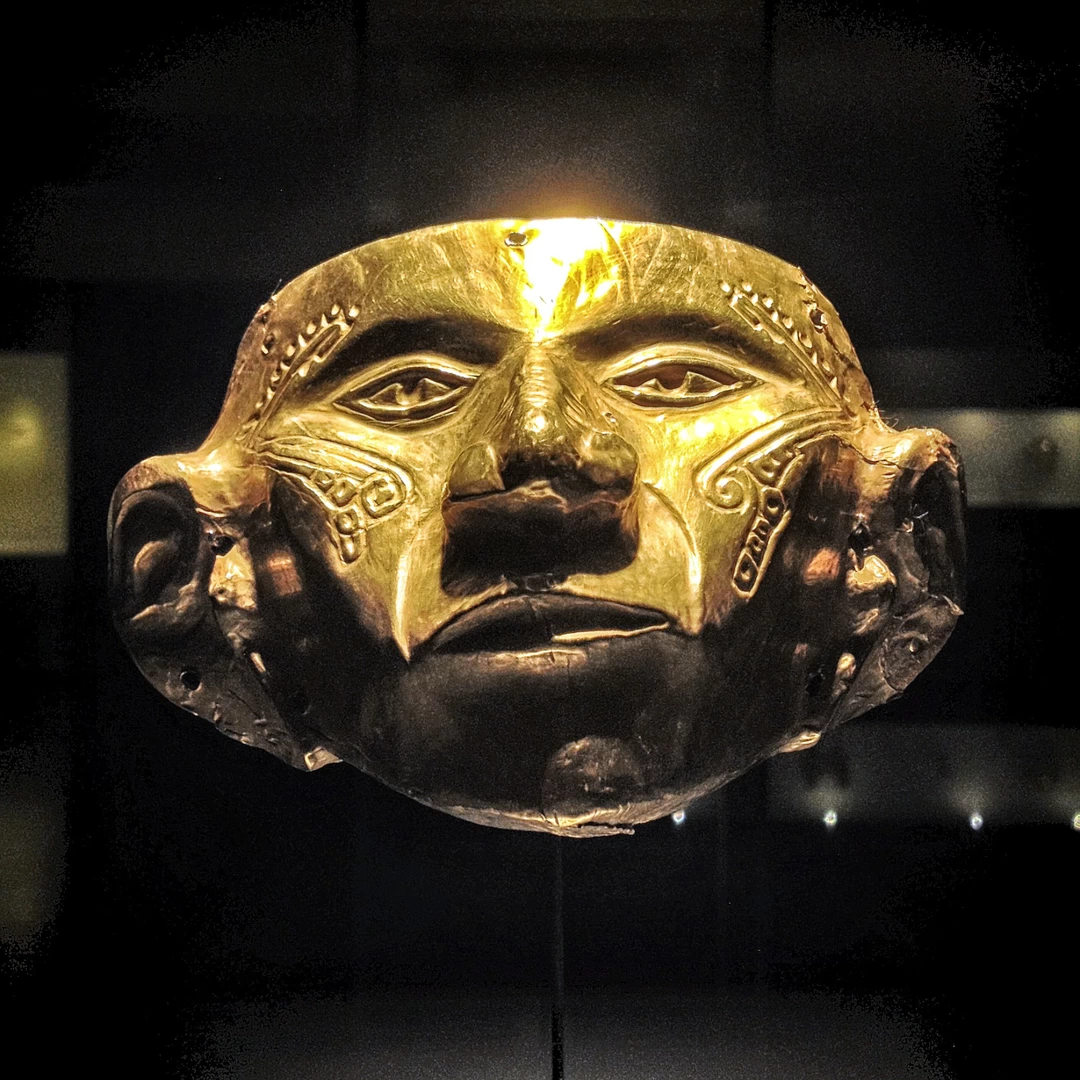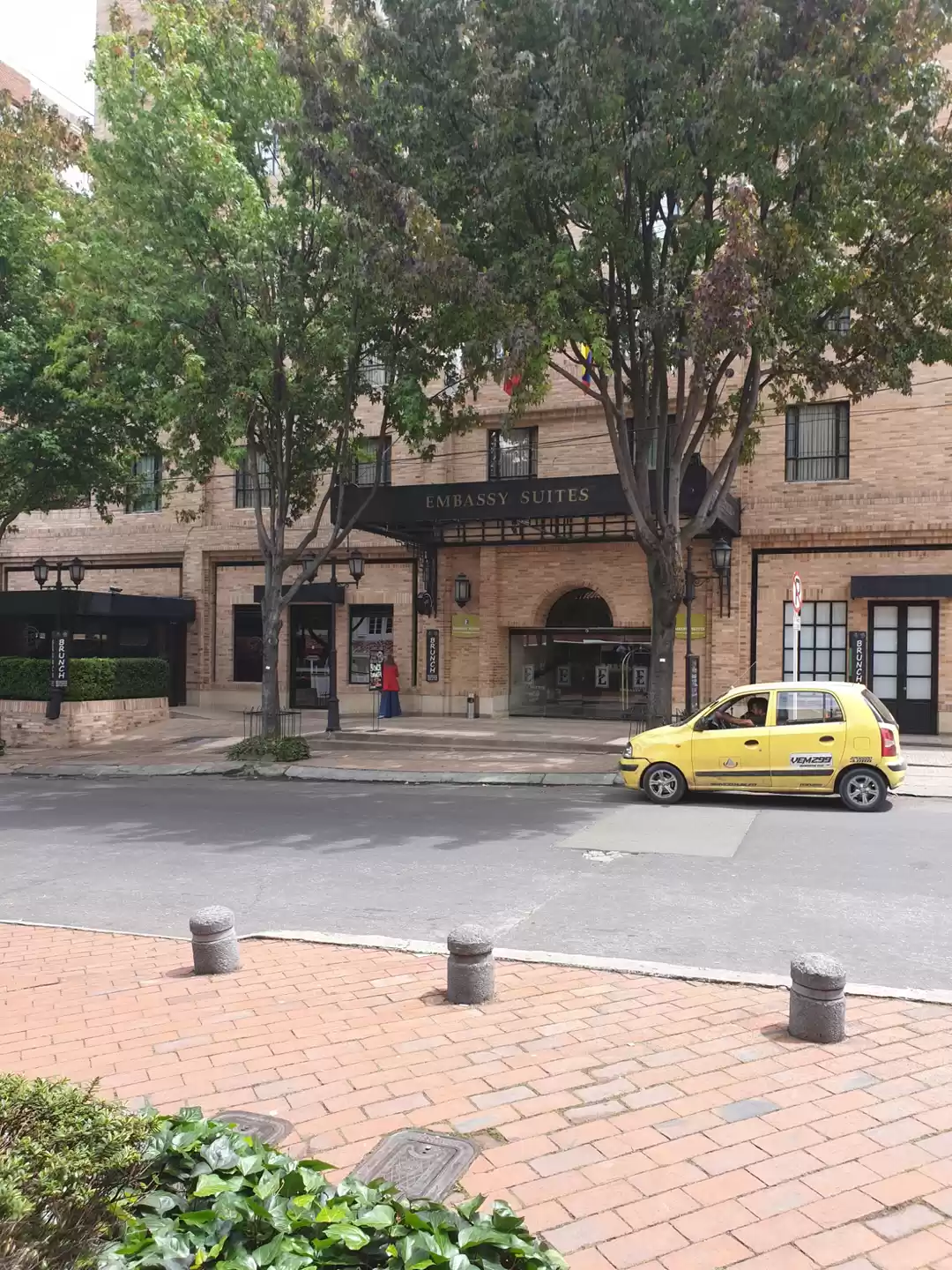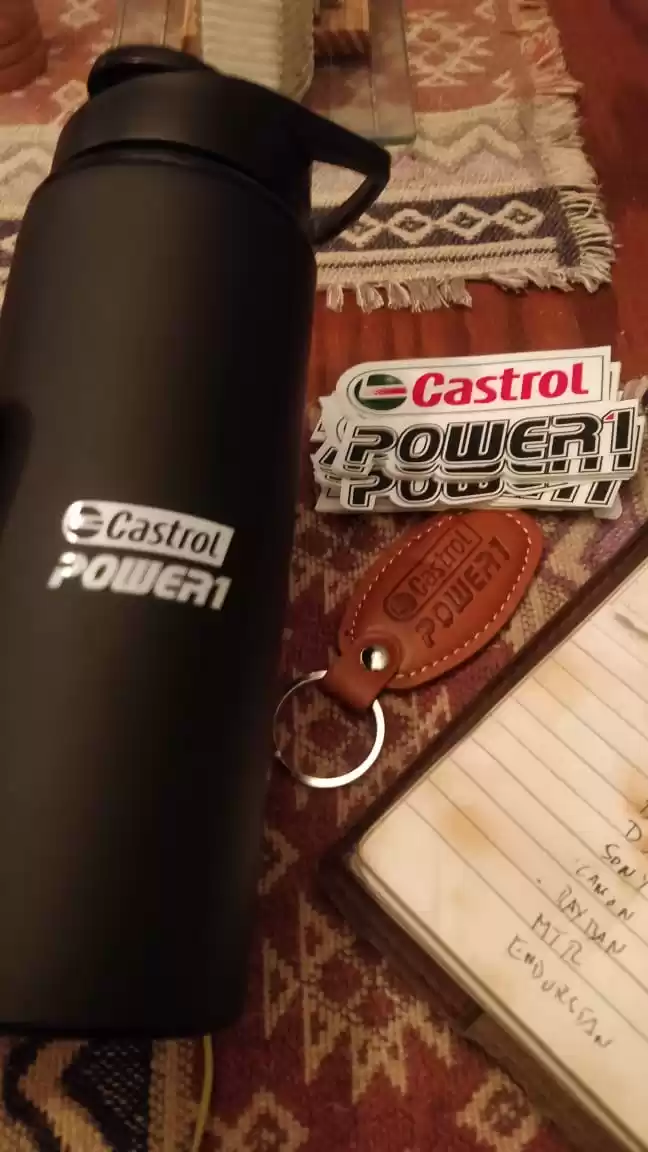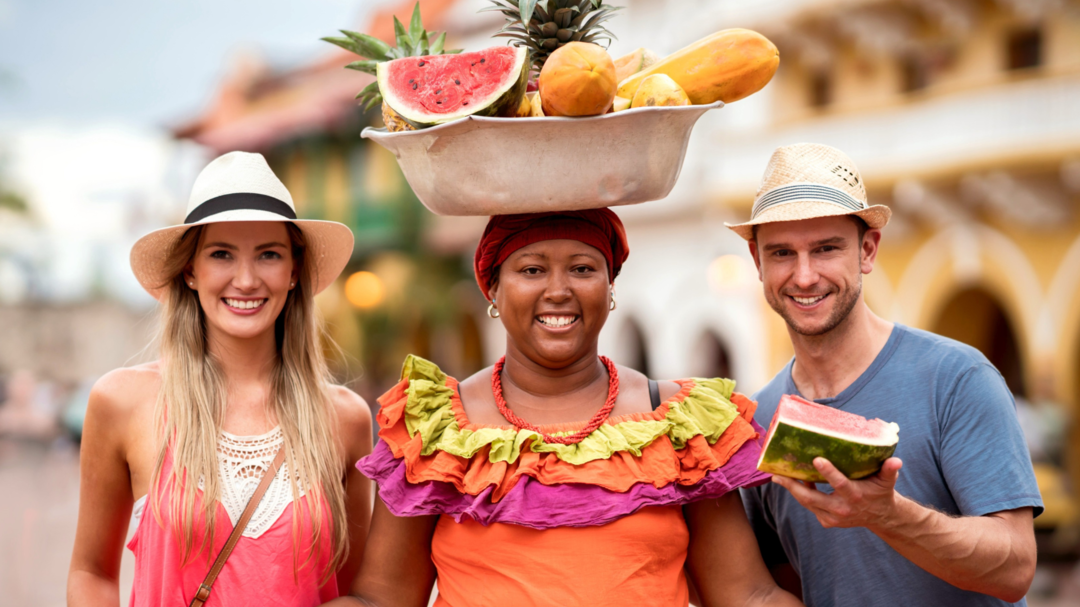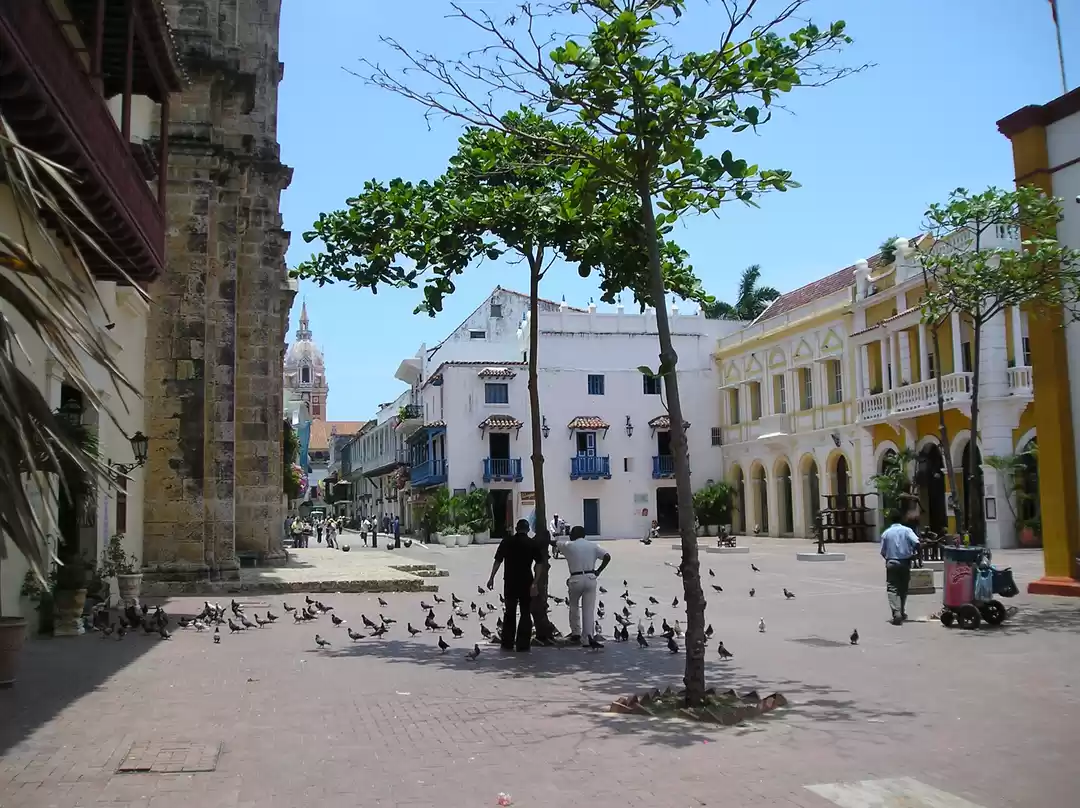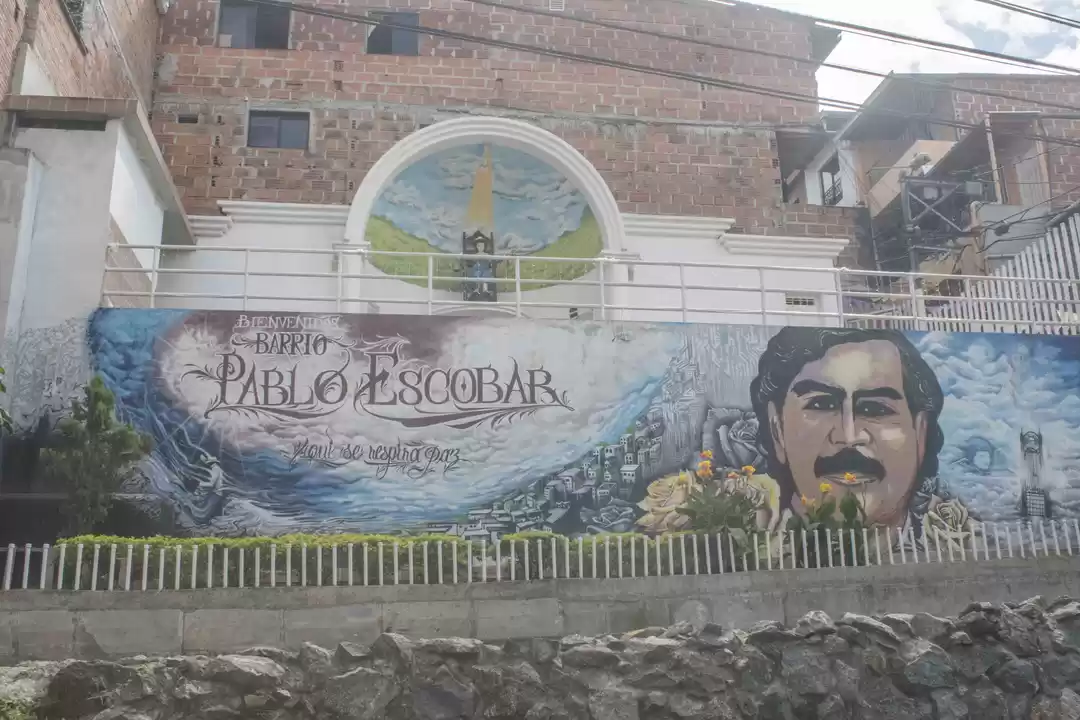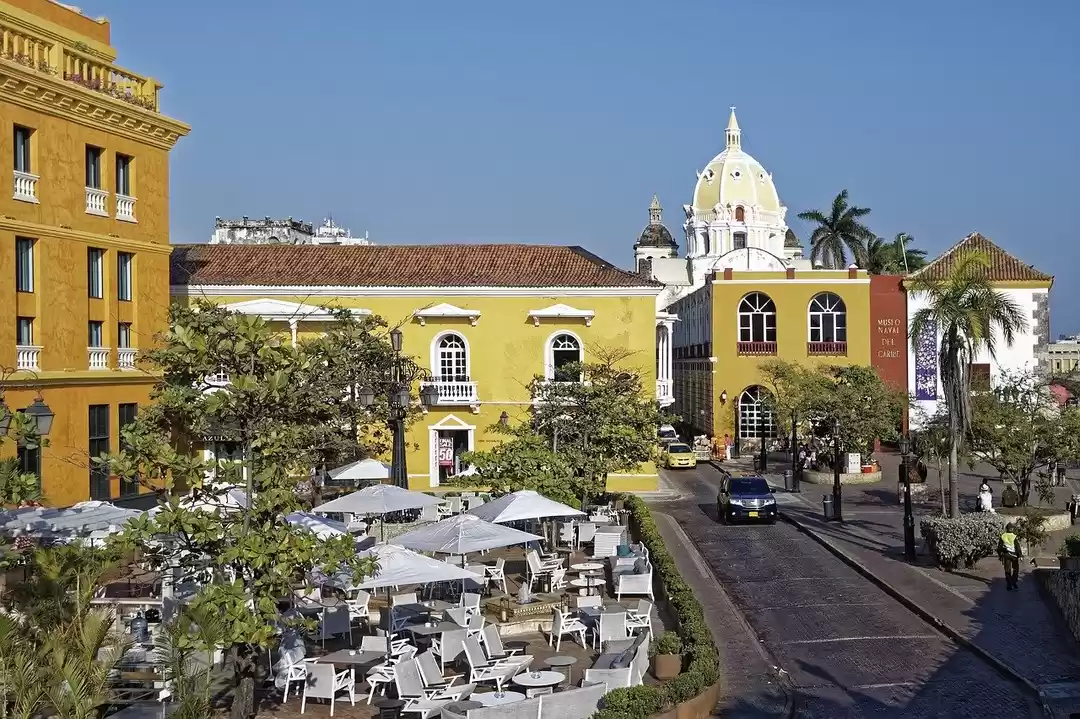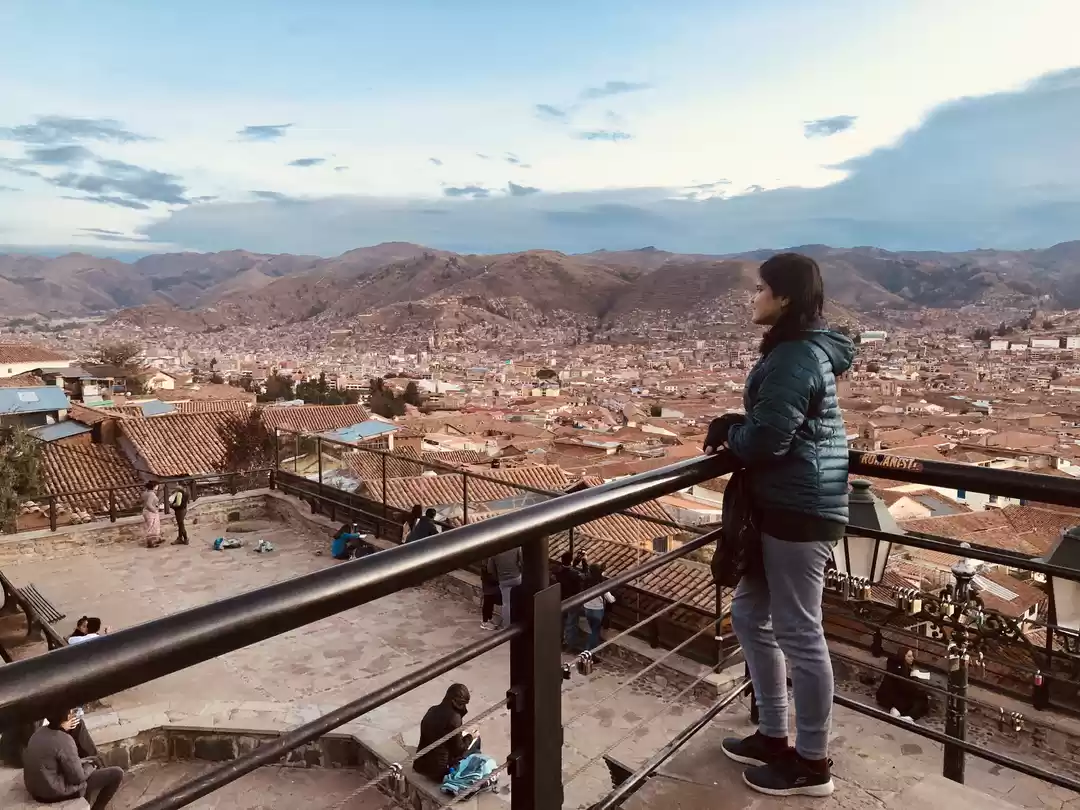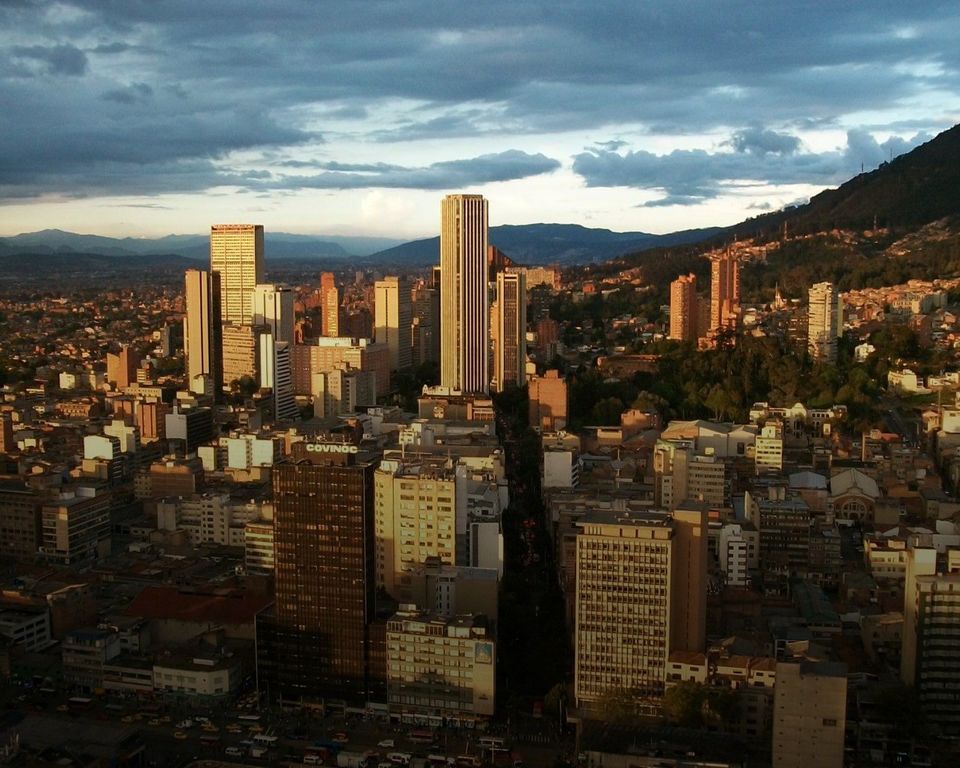
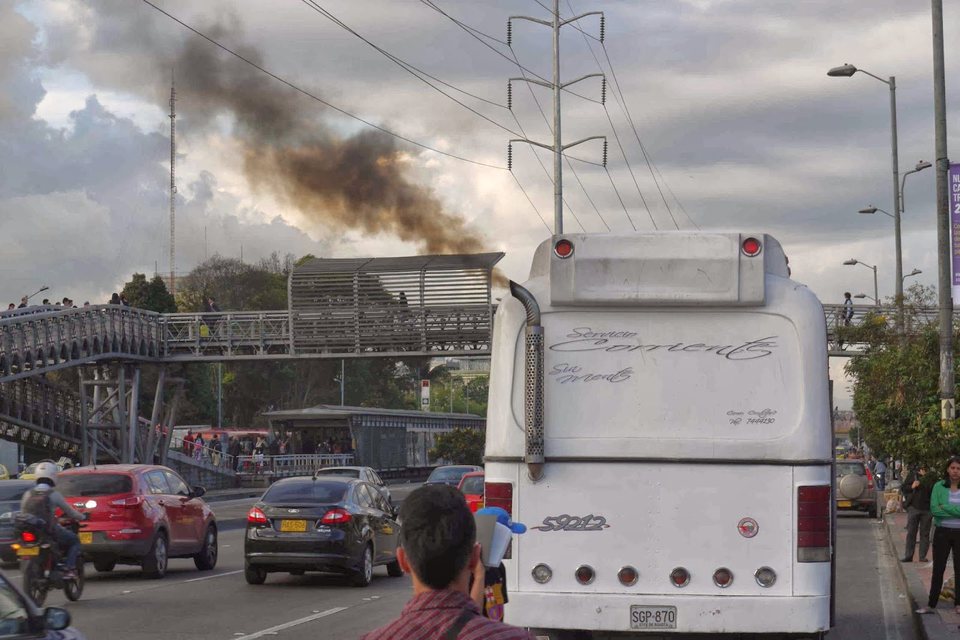
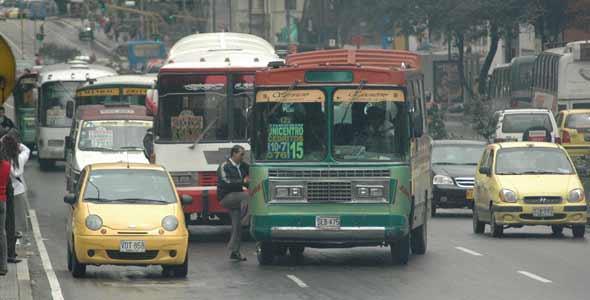
I recently saw an article on Bogotá in the Financial Times about what an awesome place it is. This article, I submit, was written while looking through a thick bit of pink glass. The FT piece is a typical example of what you'll find on travel blogs and other "20 Awesome Things to do in Kazakhstan"- type stories. However, as J.R.R. Tolkien said in "The Hobbit":
Now it is a strange thing, but things that are good to have and days that are good to spend are soon told about, and not much to listen to; while things that are uncomfortable, palpitating, and even gruesome, may make a good tale, and take a deal of telling anyway.
With that in mind, and given that my year in Bogota is almost up, here's my list of 10 things that drive me crazy about living in Bogotá. I know this will upset many Bogotanos (and delight their rivals in Medellín), but these are my gripes. In the interest of fairness, 10 great things about living in Bogotá will follow later. So, in no particular order:
Traffic: If you ask your average rolo, this is the No. 1 thing that drives everyone crazy in Bogotá. It's a big, sprawling city of almost 8 million people and it has a truly soul-crushing traffic "flow." You're lucky if you spend only an hour or two each day just to go across town. Various schemes to improve it, such as different days for even- and odd-numbered license plates, just means some Bogotanos buy two cars - one for each day. The public transportation system is a joke. Transmillenio, the city bus system, is a horror show at rush hours, with packed buses, long waits and a surfeit of pickpockets and ass-grabbers. One reason Bogotanos work such long hours is that staying in the office for 12+ hours a day is preferable to battling traffic. They're waiting for rush hour to end.
Crime: Anyone who says, "Oh, but you have crime in every city" in response to someone's talk of robberies, muggings, etc., in Bogotá doesn't know what they're talking about. Bogotá is a cesspool of crime, from muggings to identity fraud to plain, old rip-off artists. And let's not get started about government corruption, which is rampant, thanks to its status as the capital city. I've been mugged at gunpoint and my bank account cleaned out by hackers. Friends of mine have been mugged multiple times. And the Bogotá police are laughably inept. Parts of the city are no-go areas to them because they're afraid and usually you see them fiddling with their mobile phones on street corners before they'll get involved in preventing crime. They also seemingly unable to enforce exisiting traffic laws. If you need to make a police report, expect to get three different explanations of what you need to do before you figure out the right answer.
A climate of fear: And speaking of crime, it has led to an overall climate of fear in Bogotá. This is a city where no one trusts one another or tries to help one another very much. The general attitude towards the criminals is that there's little to be done about them, so the best course of action is just to avoid trouble. And the best way to do that is keep your head down and scurry home after dark. It's also embodied in a favorite saying in Bogotá: no dar papaya, or "Don't give the papaya," which means don't make yourself a target. But it's really a way for Bogotanos to say that if you got robbed, it's your own damn fault for walking in the street, being gringo, flashing cash, whatever. It's essentially a surrender to the criminal elements of Bogota, and it's because people are afraid to try to change things.
Pollution: Speaking of climate, Bogotá's is horribly polluted. I'm not talking Beijing levels of smog in the air, but the city's streets are choked with cheap and dirty mini-buses that belch black smoke into the street-level air. Mike's Bogota Blog has done a great job calling attention to the problem, and no one in Bogotá would say the air is good. In fact, it's in the top 40 most polluted cities in the world, given its size and ungoverned growth. Pollutants include sulfur dioxide, nitrogen oxides, carbon monoxide, lead and dust. And a full 70 percent of that comes from vehicles (see traffic, above.) There are emission regulations for vehicles, but they're routinely ignored. I've had a hacking cough for months from the polluted air, and the use of surgical masks in the street is common. For years there's been talk of building a metro or removing the cheap Asian colectivos from the street in favor of newer, cleaner vehicles. But the transportation mafias have a stranglehold over the city government and no one has been able to persuade Bogotanos to give up the swerving and overcrowded busetas for the new ones.
Food: Guide books will often talk about the great food options in Bogotá: you can get great Italian, Peruvian, Brazilian, French, etc. Notice a pattern there? None of those options are Colombian. Colombian "cuisine", if you can call it that, consists of unseasoned meat that is fried, or grilled, to within an inch of charcoal, usually. Arepas, those starch-laden, inch-thick answer to the tortilla, are like eating cardboard. The idea of spices is a completely alien one. I once went to a major supermarket and asked for black pepper. They didn't sell it. Most of the food consists of potatoes, rice, arepas and a paper-thin churrasco of chicken breast or beef (which is usually horribly fatty and gristly.) In truth, there are a few tasty dishes, which I will laud in my next post, but overall, it's a bland, tough slog through a traditional Colombian meal. No wonder they like juices with every meal: they're the only things on the table with some flavor.
Playing Chicken on the Sidewalk: This is a weird thing I've noticed: Bogotanos have no idea how to walk on a crowded sidewalk. Friends will usually advance down a sidewalk like a phalanx, taking up the entire space, giving no ground and giving off an air of obliviousness about anyone else around them. If someone approaches them, they either have to force their way through the offensive line, give way and press themselves against a building or step out into the street. If you are on a particularly narrow sidewalk, one of you will have to give way at the last minute, and it's not always clear who's going to do that. I can't count the number of times I've almost had my toes run over by delivery guys pushing trolleys or been body-checked by businessmen who damn sure aren't going to make any space for some grubby gringo. Once, while walking with a friend, some guy walked right into me and poked me in the eye with the brim of his cap because I was talking and not looking straight ahead of me. He was alone, staring straight ahead and refused to make allowances for anyone else. This is pretty much the mindset of Bogotanos in every situation, now that I think of it.
Few No Friends: Traveling can be really lonely, and Bogotá, paradoxically, doesn't help. Colombians, in general, are really friendly and warm, but making real friends in Bogotá is almost impossible. For starters, despite their amiable image, they can be flakey as hell. Dinner parties will be cancelled 10 minutes before you arrive. Rendezvous will be moved across town after you've already arrived in the initially agreed-upon place. Calls, emails and text messages will go unreturned. You can meet someone at a party, exchange information, make concrete plans for coffee the next weekend and then never hear from them again. Many expats - and even a number of Colombians not from Bogotá - have complained to me about this. I have a number of theories about this. 1) Family is paramount is Latin culture, and especially so in Colombia. Friends are always secondary to family, and most people are taught from a young age that the only people you can really rely on are family. Most Bogotanos spend their weekends hanging out with their relatives rather than going out with friends. 2) Colombia is a mountain culture, and mountain people tend to be really suspicious of new people. I've seen it with the Kurds in Iraq and Pashtuns in Pakistan. If you're in, you're like family and they'll literally take a bullet for you. But if you're not accepted, good luck. And it takes a lot of time and trust-building to be accepted. 3) Bogotanos work like donkeys. This city keeps farmers' hours, with lots of time at work. Late hours, high crime and bad traffic all conspire to keep people from going out with friends very much.
Few Work Opportunities: Are you a foreigner? Do you like teaching English? How about starting a business teaching English? Unless you're being assigned here as part of the Colombian division of your multinational, teaching English is about it as far as work opportunities go. And most teaching gigs are not in a classroom where students come to you. Instead, you'll be traveling around Bogotá all day (see traffic, above), going from office to office and getting paid almost nothing. It is possible to get a gig teaching at a university, but that's a coveted position, requiring serious contacts and competition is fierce. Other work opportunities are working as a movie or TV extra-I've played a cop twice-a bartender or some kind of sketchy entrepreneur in Medellín. For all the talk of the Colombian economy being the tiger (jaguar?) of South America, there just isn't a lot of work in Bogotá for extranjeros, especially if you don't speak Spanish well. Fluent Spanish seems to be a requirement for anything more challenging/rewarding. Oh, I suppose if you're a backpacker just marking time and earning some scratch to support your weed habit, it's great. But if you're at all ambitious and want to move ahead in life, Bogotá is a black hole, work-wise.
Low Pay: Adding insult to injury, the work opportunities are low-paying. While the English institution I work for pays well in comparison to other such places, it's still barely enough to cover rent each month. And I'm lucky. Colombians usually get paid even less. I know of Colombians who work hours away from their homes, gets a few hundred dollars a month and have to use credit cards to get by. They exist in a constant state of worry about getting sick, not being able to work and losing their homes. Bogotá's streets are thick with peddlers of DVDs, candies, cigarettes and what-have-you, and fully one-third of Bogotá's working population is employed in this unofficial economy. As Tom Feiling said in his book, "Short Walks from Bogotá: Journeys in the new Colombia":
"Officially, joblessness in Bogotá stands at 10 per cent, but even the bureaucrats acknowledge that another 34 per cent of the workforce is 'under-employed'. Those confined to the informal economy soon abandon the rules of the formal market economy , which has in effect abandoned them. Hundreds of thousands of bogotanos spend their working day not in offices, factories or shops, but on the street, flogging bootleg CDs and DVDs, knock-off car parts and stolen mobile phones."
It's Expensive: Bogotá isn't the most expensive city in the world, not by a long shot. Compared to, say, New York, it can be cheap. Rents, for example, are about 20 percent of what you'd pay in the Big Apple. But combined with few work opportunities and low pay, it means that local purchasing power is much, much lower than in Bogotá. For example, Bogotanos have an average monthly disposable salary, after tax, of $560.24 compared to New Yorkers' $4,393.12. And compared to other cities in Latin America such as Rio de Janeiro, São Paulo and Buenos Aires, Bogotá has the lowest local purchasing power. Only Caracas-obviously-has a worse ranking among the major capitals of South America. This means people are constantly struggling. This leads to...
Class Divisions: I've lived in Pakistan, which is a grossly unequal society. I spent time in India, which is even worse than Pakistan. But only in Colombia have I really seen just how difficult it is to be poor in a relatively rich society. Poor people here are feared and almost despised by the middle-class and upper class of the country. The city is even divided into geographical strata that determine the level of services and police protection an area receives. Poor areas get cheaper utilities, subsidized by the richer areas (thankfully!), but the cops won't go there, the (cheap) water is dirty, Internet access is slow and unreliable and taxis are reluctant to enter. As soon as I moved to Bogotá, I found myself constantly warned by middle-class and upper-class Bogotanos that "the south" of the city was dangerous. I quickly got the impression that the rich folks of the north of the city would love to build a wall at about Calle 19 and cut off the south from their designer boutiques and green areas in the north. And there's little the poor can do about it. As Wikipedia says, "In the nineteenth century, Colombia's rugged terrain and inadequate transportation system reinforced social and geographic distance, keeping the numerically superior but disunited masses fragmented and powerless." That has continued today. Health care, jobs and access to the political system are almost exclusively reserved for the largely European-descended, light-skinned upper classes. Last year, during national strikes by poor farmers protesting the impact of a free trade agreement that rendered their crops uneconomical, they were met with bullets from the cops and derision from rich Bogotanos. And it's getting worse. Even though there's an annual growth rate of 5% in 2013 and a booming stock market, the benefits are going almost exclusively to the top tiers of Bogotá and Colombia in corrosive ways. In its 2013 economic assessment, the OECD estimated that Colombia's top 1 percent control some 40 percent of the country's wealth, with land distribution even worse thanks to the country's colonial history, failed land reforms, and decades of internal conflict. The Gini coefficient for land ownership is around 86, one of the highest in the world. Until Bogotá and Colombia can expand the economic pie and seat everyone at the table, Bogotá will continue to be the capital of a feudal, deeply unequal society that presents a kind and happy face to the world, but makes it difficult for its own people.
So there you have it. My list of 10 things that are not at all nice about Colombia's newly emerging capital. Next up, 10 things to love about this place.



